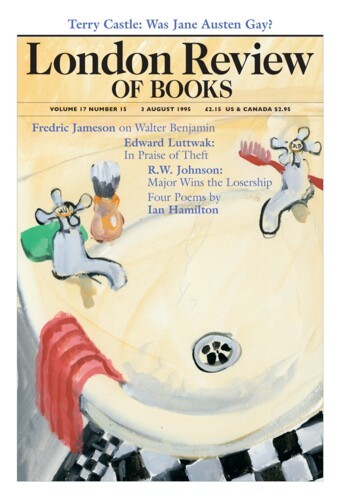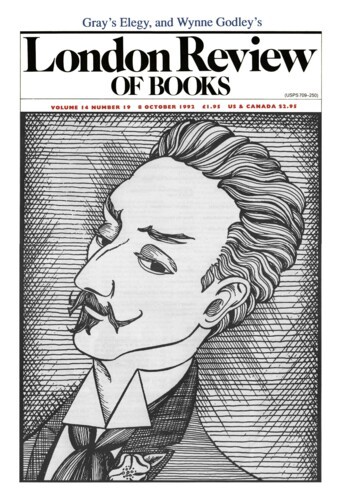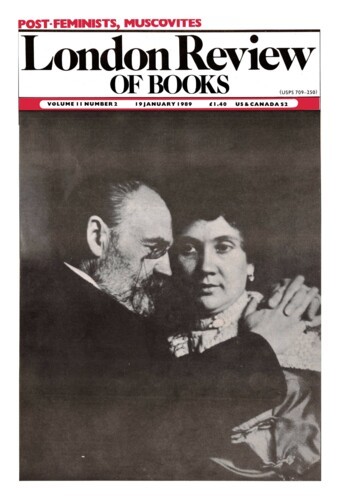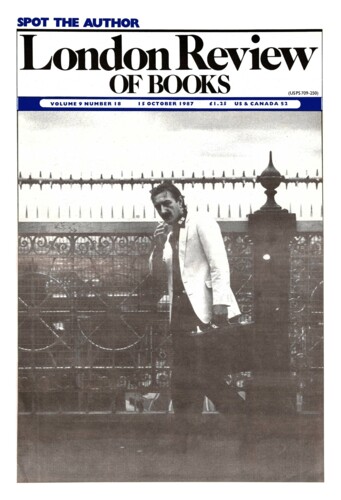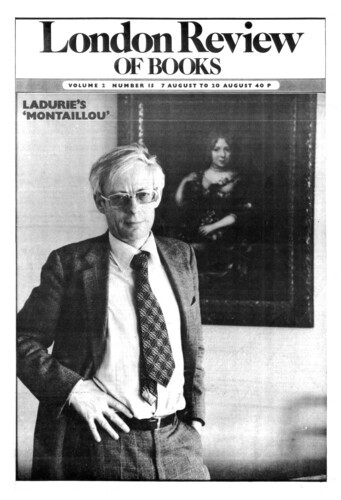Keith Walker
Keith Walker teaches English at University College, London.
Bad Nights at ‘The Libertine’
Keith Walker, 8 October 1992
Kwabena Nketia tells us, in his book African Music, that ‘music’ is defined in Africa through the social uses to which it is put. Some native African languages don’t have a word for music as a thing in itself (which, of course, it isn’t, looked at socially), but instead have different words for cradle-rocking-to-sounds, pounding-maize-to-sounds, music-for-hunting-to and so forth. But is there such a thing, anyway, as ‘music: a system of organised sounds which give pleasure, and obey’ – ‘obeying’ may include ‘flouting’ – ‘the conventions of its grammar’? The organisation of pop music is imperceptible to me, its grammar foreign, and its pleasures non-existent. I readily concede that this is not the experience of everyone. The phenomenon is widely-known, but doesn’t get much noticed. A woman I was talking to at a party recently thought that I was playing a complicated sort of game and simply could not believe me when I said I had never heard of, let alone heard, the particular rock group all her children were listening to.’
Language Fears
19 January 1989
Patrons
15 October 1987
Johnson’s Business
7 August 1980
Pieces about Keith Walker in the LRB
Poet Squab
Claude Rawson, 3 March 1988
There is an anonymous portrait of Dryden, ‘dated 1657 but probably 1662’, which shows a full-fed figure with plump alert eyes, comfortable and predatory. He seems poised between...
Wadham and Gomorrah
Conrad Russell, 6 December 1984
John Wilmot, Earl of Rochester, one of the original ‘amorous sons of Wadham’, perhaps took part in writing an obscene farce called Sodom. Dr Walker drily observes that ‘to...
Read anywhere with the London Review of Books app, available now from the App Store for Apple devices, Google Play for Android devices and Amazon for your Kindle Fire.
Sign up to our newsletter
For highlights from the latest issue, our archive and the blog, as well as news, events and exclusive promotions.
